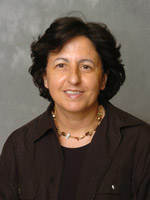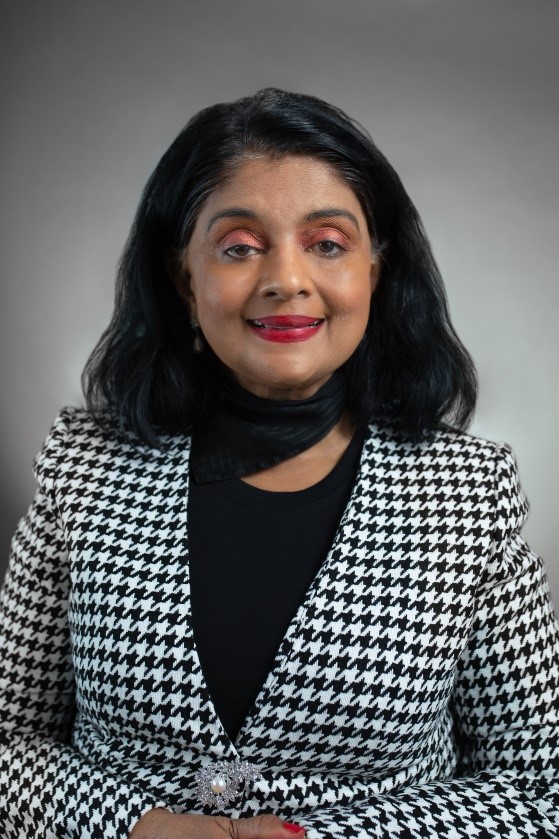Keynote title: Security, Privacy and Safety in the IoT -- Research Roadmap
Elisa Bertino
Samuel D. Conte Professor of Computer Science,
Purdue University, USA

Abstract:
The Internet of Things (IoT) paradigm refers to the network of physical objects or "things" embedded with electronics, software, sensors, and connectivity to enable objects to exchange data with servers, centralized systems, and/or other connected devices based on a variety of communication infrastructures. IoT makes it possible to sense and control objects creating opportunities for more direct integration between the physical world and computer-based systems. IoT will usher automation in a large number of application domains, ranging from manufacturing and energy management (e.g. SmartGrid), to healthcare management and urban life (e.g. SmartCity). However, because of its fine-grained, continuous and pervasive data acquisition and control capabilities, IoT raises concerns about security, privacy, and safety. Deploying existing solutions to IoT is not straightforward because of device heterogeneity, highly dynamic and possibly unprotected environments, and large scale. In this talk, after outlining key challenges in IoT security and privacy, we outline a security lifecycle approach to securing IoT data, and then focus on our recent work on security analysis for cellular network protocols, edge-based anomaly detection, and security and safety-constrained autonomous devices.
Bio: Professor Elisa Bertino's research interests cover many areas in the fields of information security and database systems. Her research combines both theoretical and practical aspects, addressing applications on a number of domains, such as medicine and humanities. Her current research includes: access control systems, secure publishing techniques and secure broadcast for XML data; advanced RBAC models and foundations of access control models; trust negotiation languages and privacy; data mining and security; multi-strategy filtering systems for Web pages and sites; security for grid computing systems; integration of virtual reality techniques and databases; and geographical information systems and spatial databases. Professor Bertino serves or has served on the editorial boards of several journals - many of which are related to security, such as the ACM Transactions on Information and System Security, the IEEE Security & Privacy Magazine, and IEEE Transactions on Dependable and Secure Computing. She is currently serving as program chair of the 36th International Conference on Very Large Data Bases (VLDB 2010). Professor Bertino is a Fellow of the Institute of Electrical and Electronics Engineers and a Fellow of ACM. She received the IEEE Computer Society Technical Achievement award in 2002 for outstanding contributions to database systems and database security and advanced data management systems, and received the 2005 Tsutomu Kanai Award by the IEEE Computer Society for pioneering and innovative research contributions to secure distributed systems. She is recently served in the IEEE Computer Society Board of Governors and as Chair of ACM SIGSAC.
SecAI: Integrating Cyber Security and Artificial Intelligence with Applications in Internet of Transportation and Infrastructures
Bhavani Thuraisingham
Founders Chair Professor of Computer Science,
University of Texas at Dallas, USA

Abstract:
While Artificial Intelligence was first conceived over 60 years ago, it is only recently that these AI systems
are being used in practical applications in various fields such as medicine, finance, marketing, defense,
transportation and manufacturing. For example, it is now possible to collect, store, manipulate, analyze and
retain massive amounts of data and therefore the AI systems are now able to learn patterns from this data and
make useful predictions. While AI has been evolving as a field during the past 60 years, the vast developments
in computing and data management systems have resulted in serious security and privacy violations. Numerous
cyber-attacks have occurred on such systems and various regulations are being proposed to handle big data so that
the privacy of the individuals is not violated.
To address the security challenges of computing systems, AI and Security are being integrated. For example,
machine learning techniques are being applied to solve security problems such as malware analysis and insider
threat detection. However, there is also a major concern that the machine learning techniques themselves could
be attacked. Therefore, the machine learning techniques are being adapted to handle adversarial attacks. This area
is known as adversarial machine learning. In addition, privacy of the individuals is also being violated through
these machine learning techniques as it is now possible to gather and analyze vast amounts of data.
With the advent of the web, computing systems are now being used in every aspect of our lives from mobile phones
to autonomous vehicles. It is now possible to collect, store, manage, and analyze vast amounts of sensor data
emanating from numerous devices and sensors including from various transportation systems. Such systems collectively
are known as the Internet of Transportation, which is essentially the Internet of Things for Transportation, where
multiple autonomous transportation systems are connected through the web and coordinate their activities. However,
security and privacy for the Internet of Transportation and the infrastructures that support it is a challenge. Due
to the large volumes of heterogenous data being collected from numerous devices, the traditional cyber security
techniques such as encryption are not efficient to secure the Internet of Transportation. Some Physics-based
solutions being developed are showing promise. More recently, the developments in AI/ML are also being examined for
securing the Internet of Transportation and its supporting infrastructures.
To assess the developments on the integration of AI and Security over the past decade and apply them to the Internet
of Transportation, the presentation will focus on three aspects. First it will examine the developments on applying
AI techniques for detecting cyber security problems such as insider threat detection as well as the advances in
adversarial machine learning. Some developments on privacy aware and policy-based data management frameworks will
also be discussed. Second it will discuss the developments on securing the Internet of Transportation and its
supporting infrastructures and examine the privacy implications. Finally, it will describe ways in which SecAI could
be incorporated into the Internet of Transportation.
Bio: Dr. Bhavani Thuraisingham is the Founders Chair Professor of Computer Science and the Executive Director of the Cyber Security Research and Education Institute at the University of Texas at Dallas. She is also a visiting Senior Research Fellow at Kings College, University of London and an elected Fellow of the ACM, IEEE, the AAAS, and the NAI. Her research interests are on integrating cyber security and artificial intelligence/data science for the past 34+ years. She has received several awards including the IEEE CS 1997 Technical Achievement Award, ACM SIGSAC 2010 Outstanding Contributions Award, the IEEE Comsoc Communications and Information Security 2019 Technical Recognition Award, the IEEE CS Services Computing 2017 Research Innovation Award, the ACM CODASPY 2017 Lasting Research Award, the IEEE ISI 2010 Research Leadership Award, and the ACM SACMAT 10 Year Test of Time Awards for 2018 and 2019 (for papers published in 2008 and 2009). She co-chaired the Women in Cyber Security Conference (WiCyS) in 2016 and delivered the featured address at the 2018 Women in Data Science (WiDS) at Stanford University and has chaired several conferences for ACM and IEEE. Her 39+ year career includes industry (Honeywell), federal research laboratory (MITRE), US government (NSF) and US Academia. Her work has resulted in 130+ journal articles, 300+ conference papers, 160+ keynote and featured addresses, six US patents, fifteen books as well as technology transfer of the research to commercial and operational systems. She received her PhD from the University of Wales, Swansea, UK, and the prestigious earned higher doctorate (D. Eng) from the University of Bristol, UK.